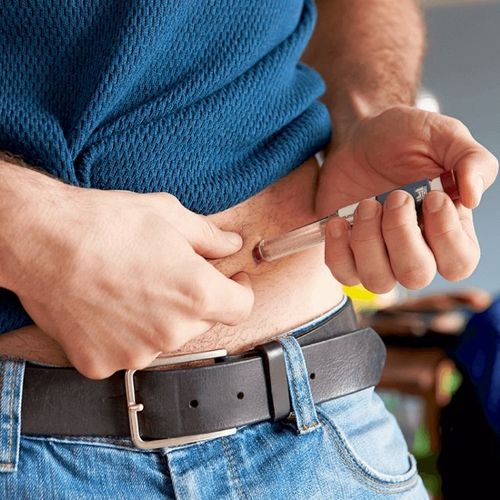Exubera, the first inhaled insulin treatment for diabetes, has been approved by the US Food and Drug Administration (FDA), allowing millions of type 1 and type2 diabetics the option of avoiding countless daily injections.
A New Option
Exubera is insulin that has been formulated into a dry powder that is inhaled into the lungs using a small, hand-held device. Like injected insulin, Exubera is administered before meals.
"This is the first new insulin delivery option introduced since the discovery of this drug in the 1920s," says Dr. Steve Galson, director of the FDA's Center for Drug Evaluation and Research. "There are more than 5 million Americans who take insulin injections every day, and Exubera may be an option for many of these patients. It will not replace all injectable insulin, but it's a highly innovative product that has the potential to improve the quality of life for millions of Americans with diabetes."
"This is highly positive," says Dr. Robert Rapaport, director of the division of pediatric endocrinology at Mount Sinai School of Medicine in New York City. "I think there will be some longstanding questions about its ultimate safety because it's the first inhaled medication that will be used like this. Bur, assuming the safety profile will be good, it will be a major advance)."
Adds Dr. Stuart Weiss, a clinical assistant professor in the department of medicine at New York University School of Medicine, "There are still some questions as to lung function...and smokers can't use it. There ate all sorts of things to be concerned about." He believes that it's going to take a few years to see how safe it is.
Safety Studies
Studies on the safety and effectiveness of Exubera were conducted on more than 2,500 type 1 and type 2 diabetics. In fact, Pfizer Inc., the manufacturer of Exubera, apparently delayed the application for US approval for three years to finish safety studies.
"Because this is a new way to deliver insulin to patients, it has been extensively studied with respect to safety and efficacy," says Dr. Robert Meyer, director of the FDA Office of Drug Evaluation II, which oversees the Division of Metabolic and Endocrine Drugs.
"We have a large amount of data from the clinical trials speaking to the safety of this product overall, and its safety in the lungs as well. we feel that there is an extensive and reasonable safety data base to allow us to make a determination of efficacy and safety for patients without underlying lung disease and who do not smoke," Meyer reports. "In addition, there are ongoing, continuing trials to monitor safety that will be reported after approval."
Exubera was found to reach peak concentrations more quickly than insulin delivered by injection. Patients who took Exubera achieved peak insulin concentration in 49 minutes, on average, compared with an average of 105 minutes when taking regular insulin, according to the FDA.
Like any insulin product, low blood sugar is a side effect of Exubera, and diabetics should carefully monitor their blood sugar regularly' Other side effects associated with Exubera in clinical trials included cough, shortness of breath, sore throat and dry mouth, the FDA reports.
A Medication Guide that contains FDA approved information will accompany all Exubera prescriptions, the agency says.
Not For Everyone
Exubera should not be used by smokers or by someone who quit smoking within the last six months. The drug is also not recommended for people who have asthma, bronchitis or emphysema. Baseline tests for lung function are recommended before beginning treatment, six months after treatment begins and then repeated annually, according to the FDA.
Inhaled insulin is unlikely to completely replace injected insulin, but for many people, it may greatly improve glucose control.
"It's very hard to predict what the impact will be," 'Weiss says. 'A lot of people who need to be on insulin are not on insulin. For that type 2 diabetic who is afraid of needles or will not take a shot, this is an ideal Product."
Exubera is also unlikely to be the only inhaled insulin on the market for long. Eli Lilly and Co., Kos Pharmaceuticals Inc., MannKind Corp. and Novo Nordisk A/S all are developing their own versions.
